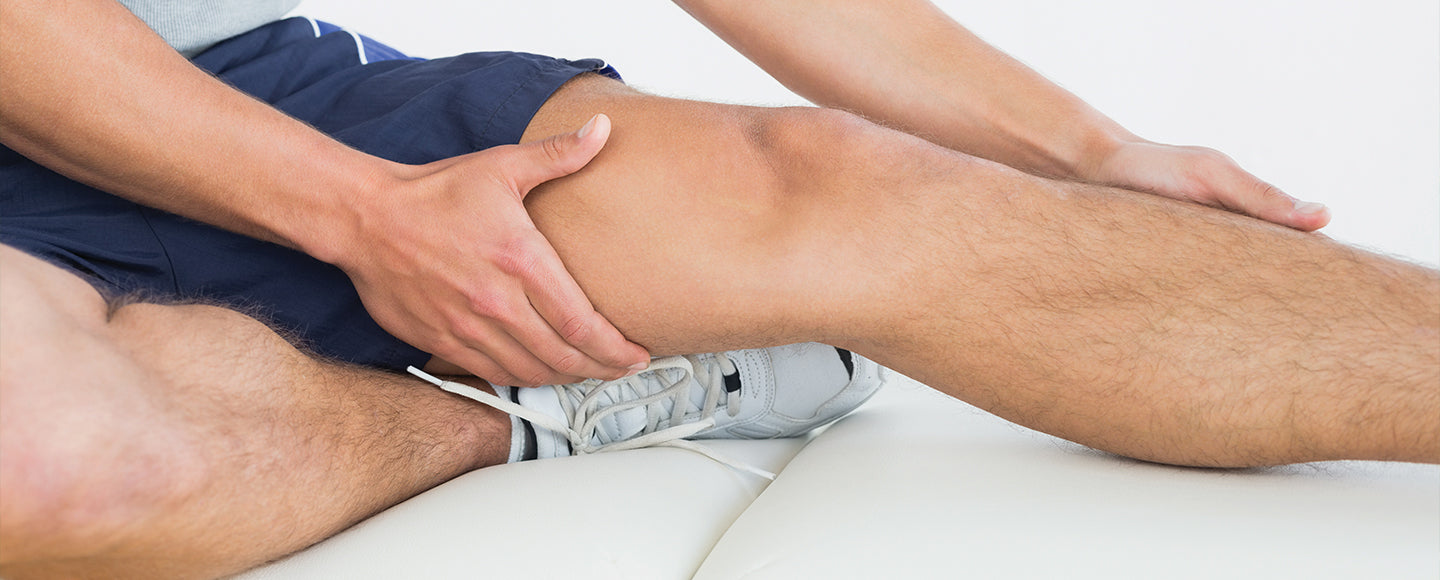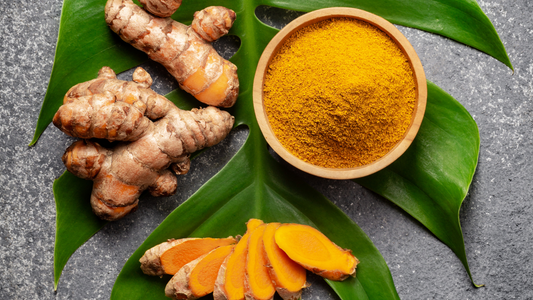
7 Natural Ways To Relieve Muscle Pain
share
You may have experienced muscle pain, for example, when you have exercised too much and overworked your body, it can be so intense that it makes any physical movement difficult.
This is a classic acute scenario of temporary muscle pain; however, muscle pain can also be a chronic condition for many people as well.
Muscle pain occurs when microscopic tears are created in the muscle tissue after exercise or intense activity and often are associated with pain to the local area. The body then sets about to repair and rebuild the muscle tissue. It is this process of breakdown and repair that helps to build and strengthen muscle tissue.
Muscle pain beyond exercise can often be problematic and chronic. There are sometimes other reasons for muscle pain, which may include inflammation, arthritis, repeated muscle cramps, flu or chronic illnesses. In this instance, further action may be needed to help relieve muscle pain.
Let’s look at some natural remedies for muscle pain:
When you are in muscle pain, your body is telling you to take notice. It may be in a state of repair and recovery or chronic muscle pain may require you to take more assertive action and seek health professional advice. Only you can understand the intensity of your pain and some of these natural remedies may lead you on the path to recovery.
Reference: *Otto, M et.al, 2018, Brain Over Body – A study on the willful regulation of autonomic function during cold exposure, Wayne State University, Michigan, USA
This is a classic acute scenario of temporary muscle pain; however, muscle pain can also be a chronic condition for many people as well.
Muscle pain occurs when microscopic tears are created in the muscle tissue after exercise or intense activity and often are associated with pain to the local area. The body then sets about to repair and rebuild the muscle tissue. It is this process of breakdown and repair that helps to build and strengthen muscle tissue.
Muscle pain beyond exercise can often be problematic and chronic. There are sometimes other reasons for muscle pain, which may include inflammation, arthritis, repeated muscle cramps, flu or chronic illnesses. In this instance, further action may be needed to help relieve muscle pain.
Let’s look at some natural remedies for muscle pain:
-
Epsom salt baths – Epsom salt is an inorganic salt called magnesium sulfate. When you bathe in magnesium it can greatly benefit muscle pain. As your skin is warmed up through hot water your pores dilate and magnesium is absorbed into the body. Magnesium is a great way to relieve muscle cramps, aches and pains and calm the nerves.
-
Cold compress – When muscle pain is intense applying a cold compress such as a soft ice pack or bag of frozen peas can help to reduce pain and swelling. A cold ice pack can help numb nociception (pain) receptors to pain, decrease circulation and decrease metabolic activity.
-
Cold showers– Whilst you may cringe at the thought of dipping your painful muscles into cold water, new research has revealed the benefits of cold water immersion or showers for the regulation of pain. A human study concluded that we can activate areas of the brain associated with pain suppression in the periaqueductal grey area (PAG) using special deep breathing techniques and cold water.* This part of the brain (PAG) is part of the autonomic nervous system (ANS) an area previously thought impossible to actually control.If this is appealing to you, it is best to build your resistance up to cold water, starting with cool or slightly warm water first and build up to a cold water over a number of weeks. Have a shower every day or every other day.
-
Gentle stretching – Slow, purposeful, gentle stretching can help to relieve stiff painful muscles. Only do gentle stretching to your ability or as far as you feel comfortable. Move slowly with your stretching and hold each position for 30-90 seconds. You should not be in more pain than when you began.
-
Super anti-inflammatory foods – With chronic muscle pain there is often inflammation. So, try including foods which have an anti-inflammatory effect on the body, some may include blueberries, fatty fish such as; salmon, sardines and mackerel, avocadoes, olive oil, coconut oil, almonds, and walnuts to name a few.
-
Magnesium – Magnesium is a micronutrient and important mineral required in over 300 enzyme reactions within the body. Magnesium is required for muscle and nerve function. Magnesium can help relieve muscle ache, pain and soreness. You can take a magnesium supplement or in food sources such as dark chocolate (70% or higher), avocadoes, dark green leafy vegetables and Brazil nuts are a few examples.
- Deep breathing – When pain is intense or prolonged and chronic. Deep breathing or relaxation techniques may help to modulate the pain response and perception. Deep breathing helps to reduce the stress hormones in the blood, regulate the immune system response and allow muscles to relax. There are a number of styles of breathing techniques, however the most popular requires you to: slowly breathe in deeply through your nose and slowly exhale through your mouth. Repeating this cycle breathing 5-10 times. You may notice with each inhale you breathe slower and for longer. This type of rhythmical breathing can help you feel relaxed and calm.
When you are in muscle pain, your body is telling you to take notice. It may be in a state of repair and recovery or chronic muscle pain may require you to take more assertive action and seek health professional advice. Only you can understand the intensity of your pain and some of these natural remedies may lead you on the path to recovery.
Reference: *Otto, M et.al, 2018, Brain Over Body – A study on the willful regulation of autonomic function during cold exposure, Wayne State University, Michigan, USA
share
Stay Informed. Feel Your Best.
Get expert tips and actionable health advice. Be the first to hear about Caruso's product launches and receive exclusive promotional offers.
Join our newsletter today.



